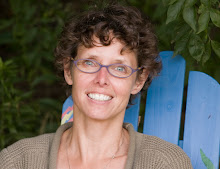The Family Prodigal
Yesterday I was called to be with the large family of a man who had died suddenly of a heart attack. He'd had no history of heart trouble, and although he'd recently had outpatient back surgery, no one expected anything other than a continuous, steady recovery. This kind of shock--the absolute ripping of the fabric of life as we expect it to be--is something I am with often. But this story had heightened color and life because of all the voices contributing. Lawrence had 14 children, ranging in age from 51 to 25, and all but two of them (and their spouses and children) were at the hospital. The waiting room overflowed into the ambulance service area; the hallways of the ER were lined with stunned and hurting relatives, each in his or her own way trying to get their minds around what was happening to them while their hearts were breaking.
Of all the siblings, there had been a family break with only one--this son, the fourth oldest, had not seen or spoken to his family in more than 7 years. The other siblings showed anger when his name was mentioned; they had been the ones who stayed close, who cared, who had a right to their grief. He walked away years ago and rejected them. One younger sister had called him from the hospital; he had said he'd come. The family waited, struggled, and disbelieved he would actually show up. After they had said their goodbyes and we had made arrangements with the funeral home, they were preparing to leave. The children told their mother he wasn't coming. "He's had more than enough time to get here, hasn't he?" she asked.
I was in the room with three of the children when his wife entered with someone I hadn't seen. The son had arrived. The mother motioned him in nervously; the other children left the room. I stood with the mother and her son while she explained--in a much more lucid way than she'd previously been able to--what had happened that morning. The son sat heavily in a chair. His mother sat beside him. No words were exchanged. No touching, no comforting, just a heavy, disbelieving silence.
The son was the last to leave his father's bedside. I went and sat with him for a while. We talked about loss and about being gone and about families remembering what was most important in times of crisis. I expressed my hope for his healing with his family. He told me he hoped for that, too.
When the son was ready to go, I walked with him out to the empty waiting room. His mother had already left and, eventually, two by two the siblings and spouses departed. In the hallway outside the waiting room, one brother remained; the fifth oldest. The two men fell into each others' arms and wept. He extended an invitation and a hope that the estranged brother would come to their mother's house that evening and go to the funeral home to help make decisions tomorrow. He said, "Mom wanted me to be sure you knew we all want you there."
Grace. Healing. Courage. Pain. Priorities.
Today I find myself thinking of the courage it took that son to bridge the gulf of years and upset and come to the hospital in those painful moments. I think of the hope that the family expressed--even in their cutting, disappointed, and angry comments about him--that somehow a reconciliation might come.
For this family, the terrible loss of a father may have brought about the return of a lost brother. At least the people are there, and willing. I trust God--and the natural draw toward goodness in all of us--to take care of the rest.

 RSS feed
RSS feed

